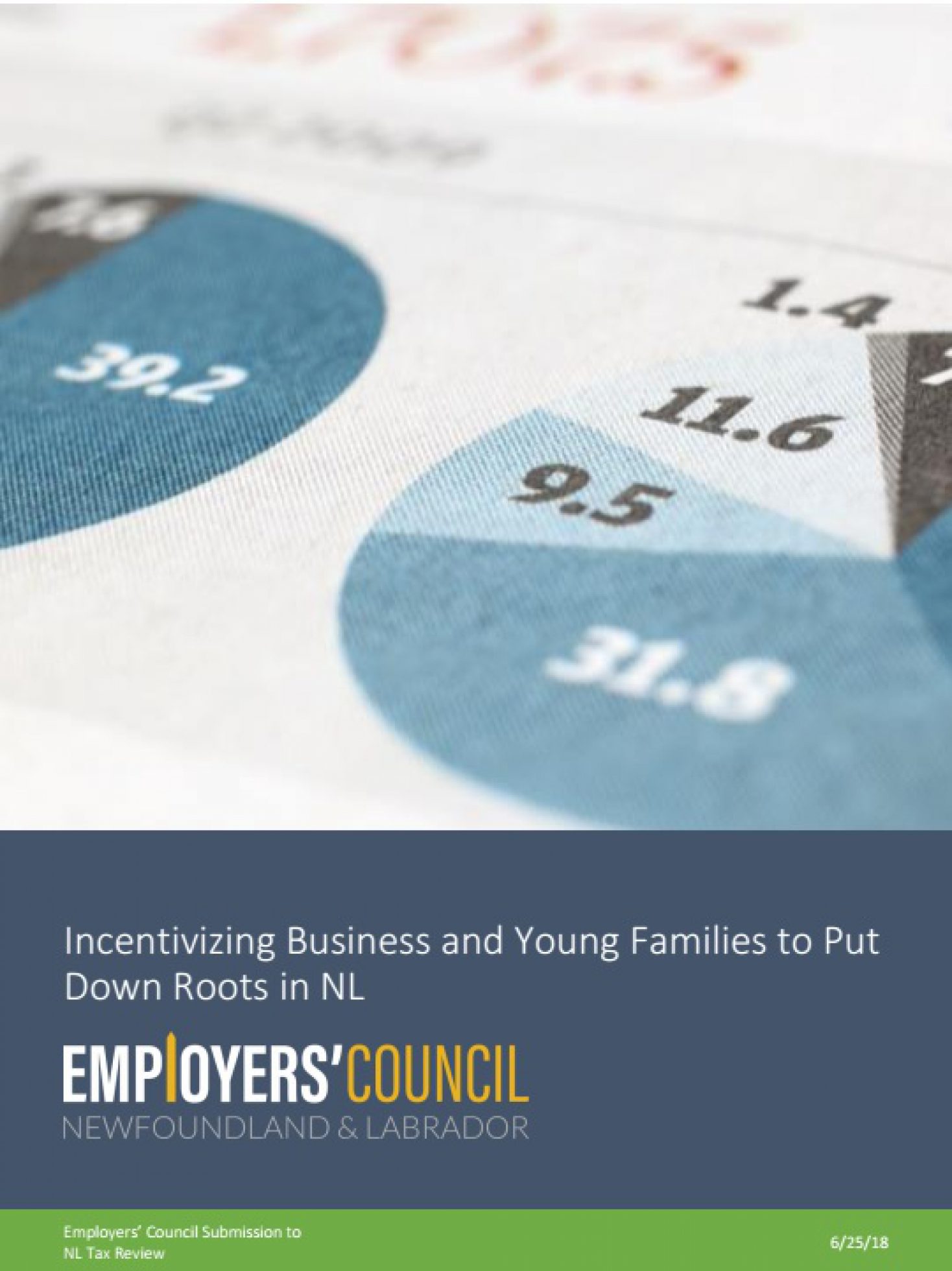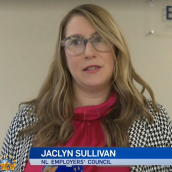
This week, the Employers’ Council presented to the provincial Tax Review Committee, a five person committee appointed by government. The committee will make recommendations for reforms to the province’s tax system, to be considered prior to Budget 2019-20.
Our presentation emphasized the urgent need to reduce the total tax burden on both citizens and businesses, in order to grow both the economy and our population. Currently, our personal tax burden is the second highest in the country, and our business tax burden is the second highest in Atlantic Canada. It is unrealistic to expect businesses and young families to “put down roots” in Newfoundland & Labrador while saddled with such a hefty burden.
Our submission included the following recommendations:
- Competitiveness on taxation should not be traded for short term increases in government revenue in this review. The Employers’ Council suggests growing the pie, not the slice.
- Our fiscal situation is rooted in a spending problem, not a revenue generation problem. There is room to reform how we deliver programs and services in NL to reduce costs and improve outcomes. The review committee should consider this in their recommendations.
Our suggested tax reforms:
- Eliminate the Deficit Reduction Levy prior to planned timeline of end of 2019.
- Reduce personal income tax for citizens earning $50,000 or more to the most competitive in Atlantic Canada. This will help attract and retain skilled workers, young families, and entrepreneurs.
- Eliminate the payroll tax, HAPSET, as it is a job and wage killer.
- Maintain corporate income tax rates, or eliminate unproductive incentive programs and use revenue to broaden and reduce the overall CIT rate.
- Eliminate corporate capital tax.
- Reduce taxes on insurance.
- “Labour based incentives” are not recommended as they are not productive or efficient.
The Employers’ Council has been preparing for this review for some time. Our submission was guided by research commissioned from the Conference Board of Canada for last fall’s “Another Way Forward” and our seminal 2015 competitiveness study “Achieving Sustainable Prosperity”, as well as accepted economic literature on the impact of different types of taxation.
Read full submission here.




